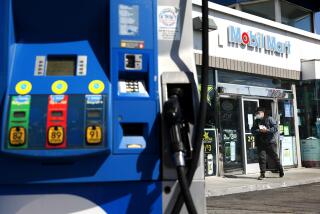New ads reignite fight over Keystone XL jobs figures
As the deadline looms for President Obama’s Feb. 21 decision on whether to approve the Keystone XL Pipeline, the dogfight is focused on job numbers. Project proponents tout an enormous number of new jobs created by the pipeline, but a labor institute says those numbers are greatly inflated.
New TV ads that began running Saturday, produced by the American Petroleum Institute, praise the pipeline as a source of desperately needed jobs, citing a figure produced by an industry-backed study that claims 20,000 jobs would be created. A contracted study by the Perryman Group said the project would create 20,000 jobs directly and almost 120,000 indirectly, but because the methods used were not transparent, labor experts say they don’t know where they come from.
“That’s part of the mystery. The number 20,000, which has been the most widely cited number, refers to direct jobs. That number is unsubstantiated. No study has actually claimed or supported those numbers,” says Sean Sweeney, director of Cornell University’s Global Labor Institute.
Instead, says Sweeney, the actual numbers could be more like those published in a news release by the pipeline’s parent company, TransCanada, which said the project would produce 13,000 “person-years” of work. Over the two-to-three-year duration of the project, that would mean about 3,500 to 4,200 short-term construction jobs. This is the number that TransCanada provided to the State Department in its original permit request. The department has estimated the permanent jobs created as in the “hundreds.”
Sweeney’s group produced a report on the jobs figures that was issued in September, but the Natural Resources Defense Council held a news conference Friday to address these figures again, seeing the discredited numbers were still in the ads.
“What we wanted to address in the report was not just the wildly exaggerated claims,” says Sweeney. Rather, it was how they were used. “The industry really loaded the gun, in our opinion, and then the political supporters have fired the gun without any qualifiers. We hear Keystone XL will generate 350,000 jobs. For members of the public listening to that, they’re probably going to think this one project is going to turn the U.S. economy around virtually on its own.”
And that, he says is simply not true. Job figures put out by pipeline proponents count manufacturing jobs that are already known to be happening in India and elsewhere, and also fail to take in all the ways that a pipeline kills jobs. A group of fuel-efficient car manufacturers sent a letter to President Obama in 2011 urging him to vote against the pipeline, saying it sends the wrong signal and will discourage investment in green energy technologies.
Sweeney points out that spills also divert much-needed funds and close businesses, such as the 2010 spill from the Enbridge pipeline that dumped tar-sands oil into the Kalamazoo River. Businesses such as Kellogg’s were forced to close or curtail operations until that spill could be cleaned up. Oil pipeline spills cost as much as $955 million in the U.S. in 2010.
Those big-money TV ads, however, are very sticky.
RELATED:
Operation Cyberwild busts Internet endangered species sales
EPA Web tool tracks major greenhouse gas sources
And the 2011 award for bad climate science goes to...






